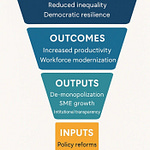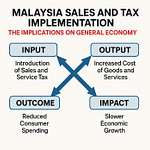Ethnocapitalism refers to how economic capital power is distributed along ethnic lines, with preferential policies such as the Bumiputera policy favouring the Malay majority.
This approach leads to a concentration of wealth and resources in the hands of a new Malay class (T15 maharajas) of ethnocapitalists under the guise of promoting ethnic harmony and equity.
By manufacturing consent through Ethnocapitalism, state policies promoting Malay economic interests, the ruling class fosters consent among the Malay working and middle classes by suggesting that their economic welfare depends on preserving the current ethno-religious order.
This, in turn, marginalises other ethnic groups and working-class interests while framing the elite’s accumulation of capital as a national priority
With the Working-Class struggle and its marginalisation, Class Tensions and Disparities arise.
Despite policies aiming to uplift the Malay working class, socio-economic disparities persist. The working class, both Malay and non-Malay, often struggles with low wages, rising living costs, and limited access to economic mobility, only exacerbating further class inequalities.
Meanwhile, hegemony is maintained through consent (via religious and ethnic narratives), besides the royalty culture interest in wealth worshipping,(Fikri, NUS 2024); coercive mechanisms — such as restrictive labour laws and control over political dissent by internal security orders — also play a role in suppressing working-class resistance, limiting the potential for collective action.
ESSAY amplified here.
Thank you on revisiting this site to view videos and read geoeconomic articles.
with solidarity,












